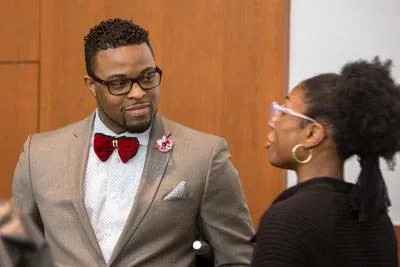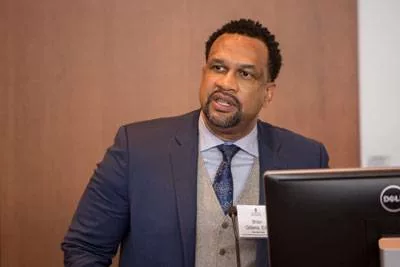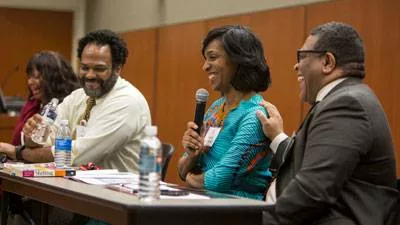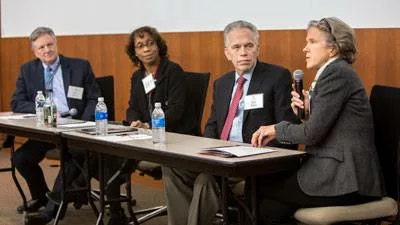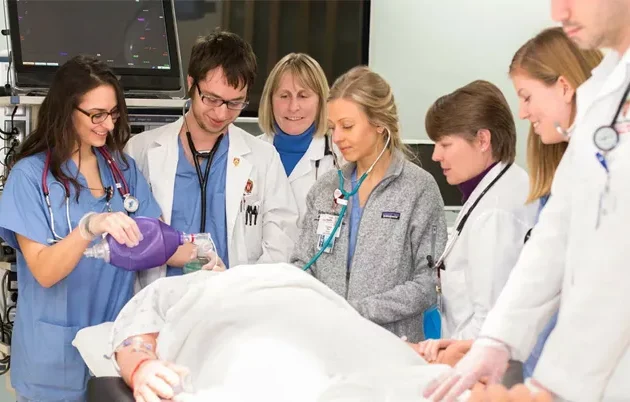While the frequently touted goal is to have the same percent of minorities in the physician workforce as in an area’s population, Downs noted, “The regional percentages do not reflect reality. For instance, in Wisconsin, where we have a population that represents 6.3 percent African Americans, 1.6 percent of our physicians are African American.”
Downs, who earned his medical degree from the University of California-San Diego and completed a residency at Brigham and Women’s Hospital in Boston and a urologic oncology fellowship at the University of California-San Francisco Medical Center, cited other states that have a similar imbalance, including his home state of California (3 percent of physicians who are African American to serve a state population of 5.7 percent African Americans) and Georgia (12 percent of physicians who are African American compared to 30 percent of its population).
Further, Downs said, “I’m in that 1.5 percent of full professors who are of African American descent.”
Putting this in the context of AAMC statistics, he stated, “When you look at black physicians vs. white physicians in the academic medical center workforce, we comprise 3 percent compared to 63 percent. It’s typical to see higher numbers at the assistant professor rank, but then you see a drop in numbers when the rank goes up in terms of those who have persisted in academic medicine and been promoted. We see very different numbers for our white colleagues.”
Reflecting on why the journey into medical school can be so arduous for African American men, Downs noted that persistent economic inequalities between African Americans and other groups can lead to unintended academic challenges in terms of “where you start, your schooling and the expectations people have for you, be they high or low.”
He said, “African Americans may face a greater likelihood of missing out on test preparation and other things that can increase their ACT scores and high-quality advising that could help steer them toward medicine as a career.”
Driven to Excel
Sharing these concerns, keynote speaker Feranmi Okanlami, MD, offered observations along with a personal message of resiliency. After earning his undergraduate degree at Stanford University and his medical degree from the University of Michigan, Okanlami is completing a family medicine residency in the face of difficult circumstances: Partway through his medical training, he survived a diving accident that paralyzed him from the chest down. After two surgeries at Yale and several months of intense inpatient rehabilitation in Chicago, he was blessed with some return of motor function and moved back to his parents’ home in Indiana to continue outpatient rehabilitation.
Due to his determination, Okanlami is looking toward a bright future, with an energetic 6-year-old son and an accepted faculty position in family medicine and physical medicine and rehabilitation at Michigan Medicine. There, he also will be the faculty lead for medical student success in the Office for Health Equity and Inclusion.
During his talk, Okanlami described his experiences as an African American man in academic medicine. Immigrating from Nigeria when he was a child, and as the son of two physicians who strongly encouraged him to enter medicine, he was a star athlete on the track team during his undergraduate years. Following medical school, he matched to an orthopedic surgical residency at Yale. Early in his third year of that residency, his accident changed his life and medical career.
Adopting a philosophy of “disabuse disability” — modeling that “disability” doesn’t necessarily mean “inability” — he pursued rehabilitation with tenacity.
